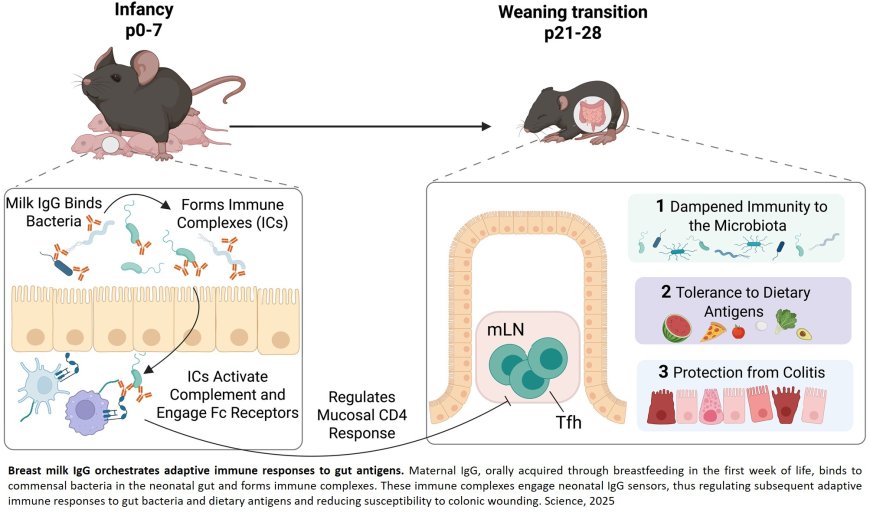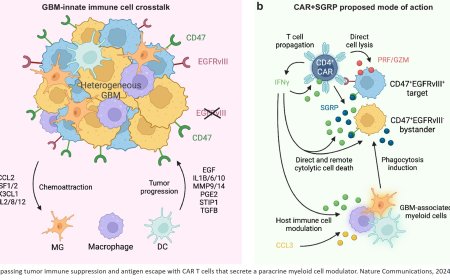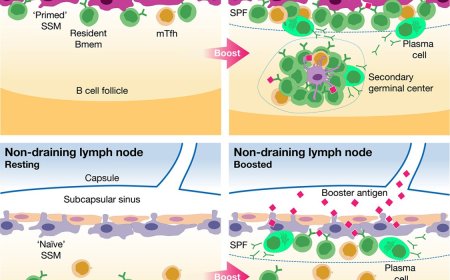Breast milk maternal antibodies regulate early neonatal immune responses in mouse gut

The first weeks outside the womb are a massive learning experience for the neonatal immune system, especially in the gut as it learns to distinguish helpful from harmful antigens.
In mice, maternal antibodies ingested in breast milk in the first week after birth help to regulate immune responses in the newborn gut, according to a new study.
This process builds the important partnership between the microbiome and host at an early stage, paving the way for nutrient assimilation, avoiding inappropriate inflammation and resistance against pathogens.
The researchers found that mouse maternal immunoglobin G antibodies (IgG) bind to bacteria in the neonatal gut to modulate the immune response in the gut mucosa. This antibody-bacteria complex binds to antibody receptors in the gut to limit the response of T cells to food antigens during weaning and in response to experimentally induced colitis during early life.
The authors found that feeding pups microbiota-reactive IgG in the first week of life served to limit offspring susceptibility to colitis and prevent aberrant allergic responses to food antigens during the weaning transition without causing changes in microbiota composition or gut barrier function.
“Translating these findings to human infants will require studies integrating information on the timing of exposure to maternal antibodies, along with the development of key immune components and the intestinal microbiota,” the authors write in a related Perspective.












